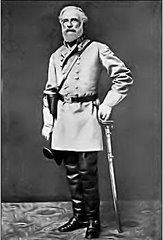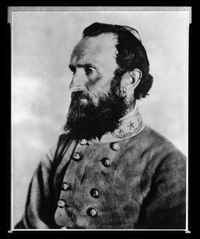Wednesday, June 27, 2007
Romanicism, A Way of Life
This is for all of the romantics in the world, especially those who TRULY know what a romantic is, and also for all those who are interested in learning about romanticism. Romanticism is not just about loving a specific other in a real intimate way, although that is part of it. Many romantics are not even considered "romantic" people. Candlelight dinners has some roots to romanticism, but is not what romanticism is all about.Romanticism is really about symbolism, not rationalism; emotionalism within intellectual ideas, not pure intellectualism; love, not lust or war; bravery, not running in fear; social manners, not rude behavior; having certain roles in authority, not total equality; chivalry and proper ways of 'courtship' or treating a spouse; not the same roles of the sexes; theism, not athesim. Romanticism teaches that a man treats a woman as princess, and a woman treats a man as an honorable prince. Romanticism teaches lasting love, not just for spouses, but mankind. Romanticism teaches reliance on others, but also a semi-private lifestyle. Romanticism appeals to the emotions more than the intellect.The origin of romanticism can be debated, but there are some good ideas. Romanticism probably has it's origins to the middle ages, where the Feudal System began to take hold. There was a constant struggle between many Christian, or in the least, theists ideas, and agnostic or humanistic ideas. Chivalry was a major part of the lifestyle as well, as men would be brave to go to war to protect their families. Romanticism could be seen in literature as well, such as many of Shakespear's writings.The conflicting ideas had different movements toward the end of the middle ages and early modern time. Theistic ideas were seen in the Great Awakening, and the Protestant Reformation. Intellectual and individualistic ideas had it's movements centered in the Enlightenment, but probably also other small movements. The Founding Fathers of America were influenced by both theistic, romantic movements, as well as humanistic, intellectual movements. Many of our founding fathers were Christian, but there were some who were theistic humanists, and perhaps even a few Deists. These two seemingly conflicting views, however, did find common ground in the Founding Fathers- even those who battled between both sides. Both movements wanted change or reform to the modern Christian Church. One movement wanted it from within, to make a better church, while the other movement wanted to do away with it all together.But these views did not find common ground for long, as as Protestantism swept throught the Southern United States, romanticism began to be heavily dominant in the South, and intellectualism began to be heavily dominant in the North. These culture differences did eventually even lead to the War Between the States. Although the war is noted for being a war on slavery, it was really the cultural differences that instigated a lot of the war. The cultures were entirely different.After the North won the war, they began to use reconstruction, to try to unify the differences. However this came more as a forceful unifying, where the North wanted Southern culture to be like the North. This never worked, and pure romanticism is still alive today. But it did shake romanticism up a bit as well. Now, there are many false forms of romanticism, such as the overly-emotional romantic, the hypocritical romantic, and the lacking romantic. The names pretty much describe themselves. If there was any good in the shaking of romanticism like this, it would be that it made different views on romanticism, and different outlooks to life within one worldview. However, many of the other forms of romantics are false romantics, and do not understand what romanticism really is. It is a way of life, giving proper social structure, through a theistic outlook.The true romantic man treats a woman as a princess. The ture romantic woman respects this kind of man. The true romantic believes in God, and believes that He is working in the world today. The true romantic brings optomism to a pessamistic world, and hope to a world of fear and hate. The true romantic brings proper structure and form, if nothing else for the sake of symbolizing something much more greater. The true romantic believes in right and wrong- morality, as it is commonly called. The true romantic strives to love his neighbor as himself. The true romantic submits to authority, and relates to the emotions of men. The past is never dead to the romantic either. The true romantic realizes that those who do not know history are doomed to repeat it. He always remember his past, because it is a learning experience, and it is who he is. The true romantic has heritage, and is not ashamed of it. The true romantic in all ways, defends himself, his family, his life, his fortunes, and his sacred honor.
Subscribe to:
Post Comments (Atom)










No comments:
Post a Comment